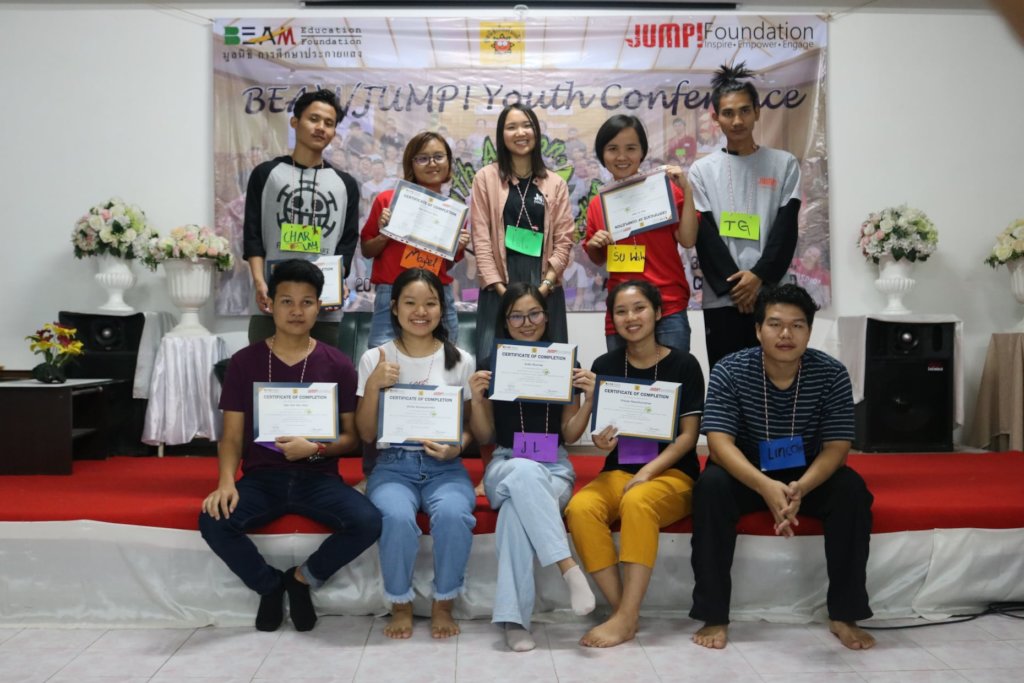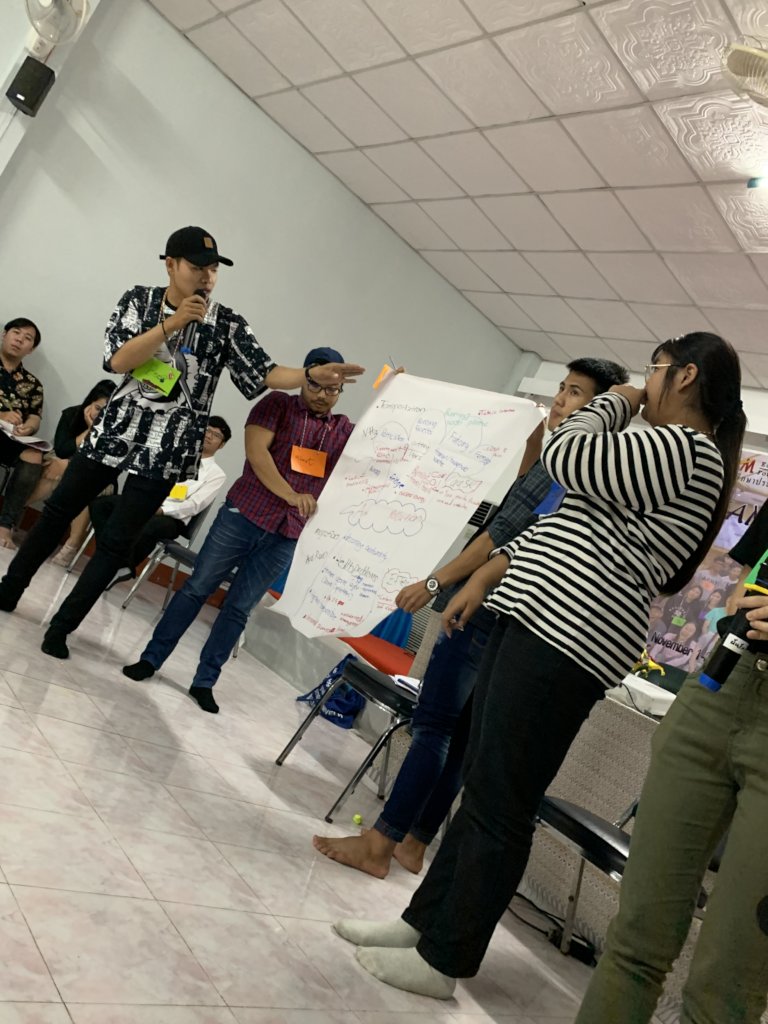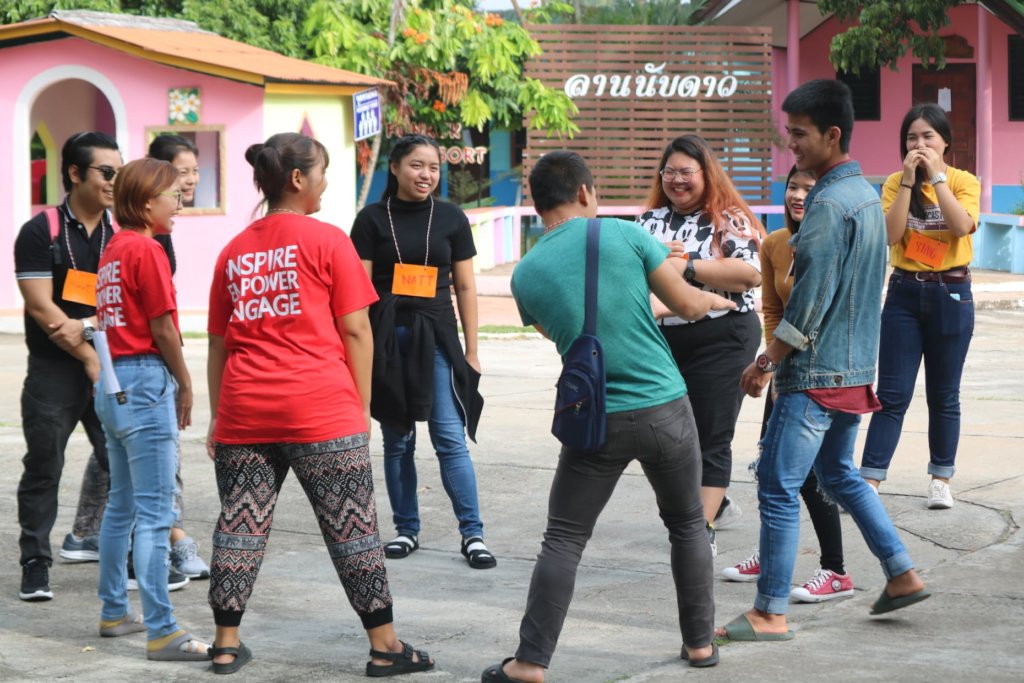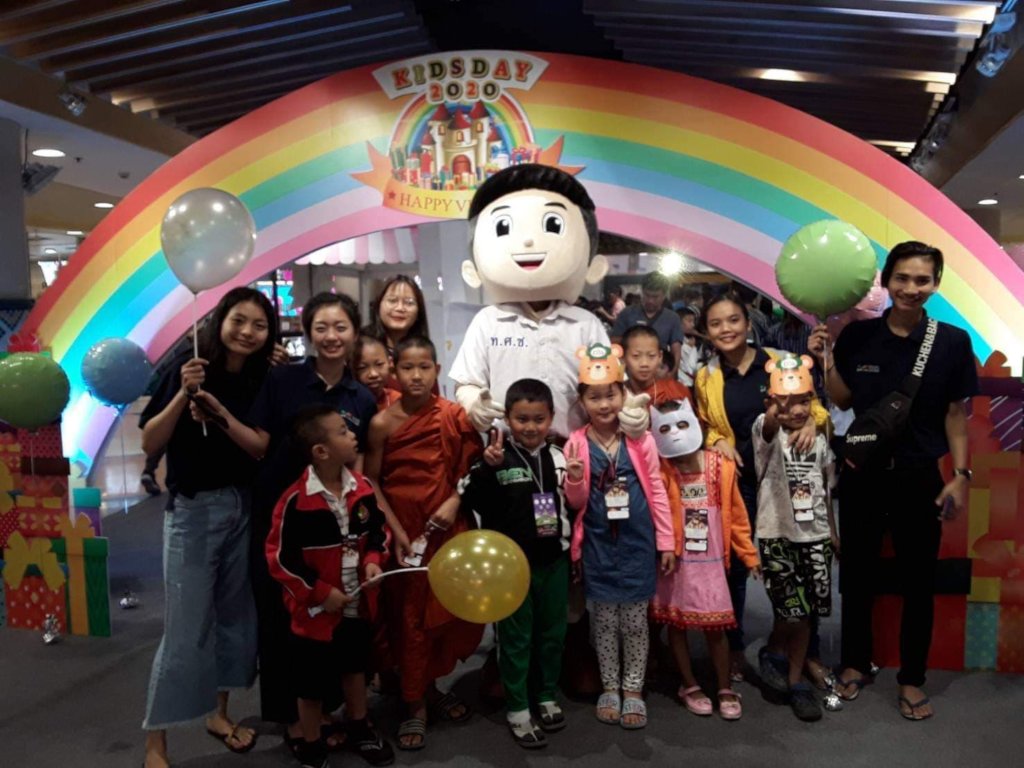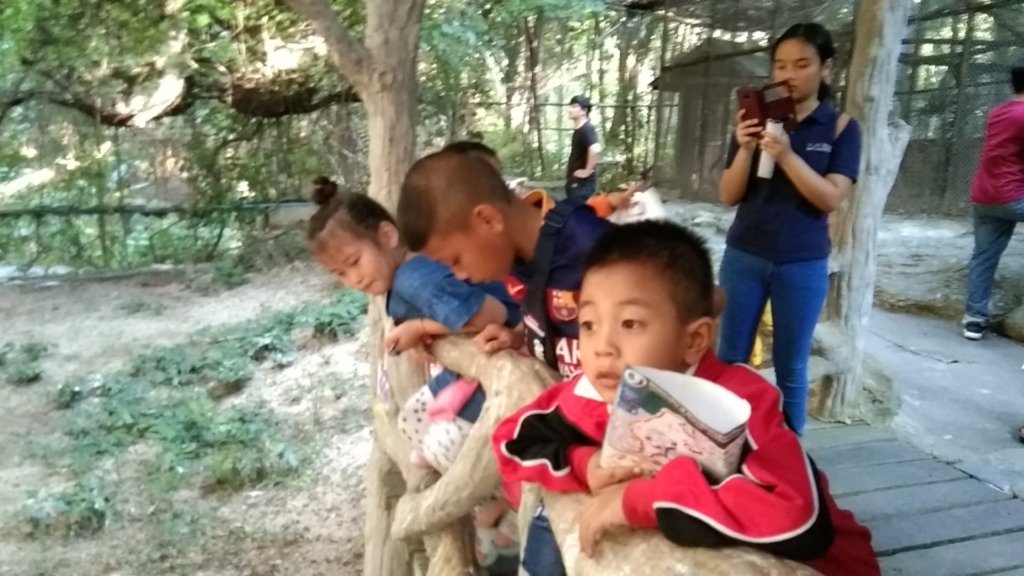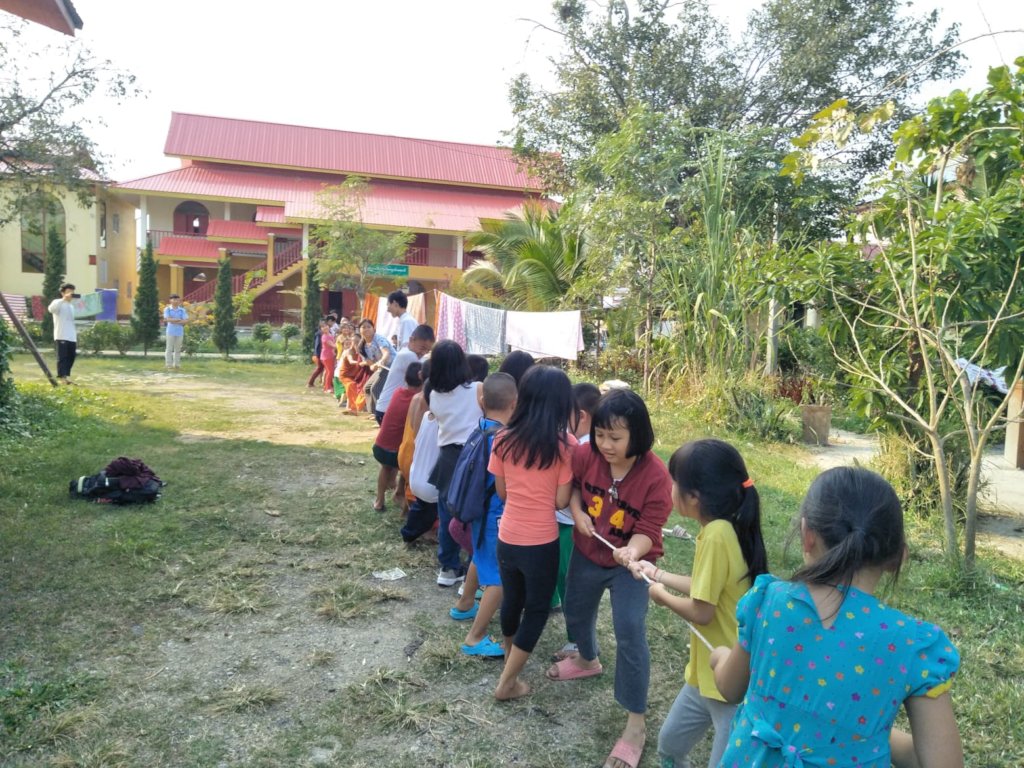By Lulu Zhou | Higher Education Program Associate
Dear all,
The BEAM team would like to wish you a very happy 2020, and we hope your year is off to a strong start! Our GED students are in their homestretch - their final semester at BEAM is from January to March. Most of them will take the GED exams (4 subjects including math, science, language arts, and social studies) from March to May. Soon they will be applying to universities and scholarships. Thus, this semester emphasizes GED and university preparation; we have fewer extra-curricular activities than the past two semesters. We would like to share updates about our students and program here.
Please feel free to reach out if you have any questions, comments, suggestions, etc. Thank you so much for your time, interest, and support - we would like to express our deepest gratitude.
1. BEAM Background
BEAM Education Foundation (BEAM) was founded in January 2010 as a registered non-profit educational foundation to respond to rising educational needs of migrants and refugee youth living in Thailand, most of who are from Myanmar. Currently, Thailand is hosting about 3 million migrants from Myanmar, which comprise 4-5% of the total population of Thailand, with a much higher proportion found in northern cities like Chiang Mai. This population makes significant contributions to the Thai economy by working in agricultural, industrial, and service sectors. 65 percent of this population is between the ages of 18 to 25, and they are mostly from rural communities of Myanmar. Due to their status as migrant workers, which is oftentimes a tenuous legal status, there are many barriers for migrants to access to social services including education.
BEAM envisions local, people-oriented, peaceful, and developed communities in Myanmar and Thailand, which can be sustained by empowering local communities through comprehensive education. In the past 8 years, BEAM experienced and proved that migrant youth are highly potential to be leaders for bringing positive change in communities along the Thailand-Myanmar border areas where people are more marginalized and receive limited opportunities for development.
2. GED Program for Higher Education
BEAM has implemented the GED Program as part of the Higher Education Preparation and Community Young Leaders Development Program. This program is designed to provide migrants and border youth with a classroom for pursuing accredited education, professional development training, research training, internship and community impact projects, and an ASEAN youth network. BEAM has ten years of experience in training youth for pursuing higher education, professional development, building professional networks, and empowering them to engage in community service.
The GED (General Education Development) program, an American-based and internationally recognized non-formal high school diploma course, allows students without a formal education background to receive an official high school diploma which is required for accessing tertiary education. All courses are taught by native English speakers to effectively prepare students for their exams. There are four test subjects: Reasoning through Language Arts, Social Studies, Math, and Science.
3. Teaching Activities
The final semester at BEAM's GED program runs from January 6th to March 27th. BEAM’s curriculum has been using a student-centered teaching approach with connected topics covered in class to real-world situations, as this is important for the students’ overall comprehension and retention. This also gives students not just a theoretical understanding of each lesson, but also knowledge of its practical application. All teachers give homework assignments and assign projects to encourage independent study.
BEAM’s GED students demonstrate the basis of a democratic environment where participants co-operate, respect each other, work together, look for and provide support in the learning process, establish rules of behavior, and continuously work to improve themselves and their learning community. Teachers and students are encouraged to try out strategies that promote democratic behavior in safe spaces.
The GED teachers include David Friedberg (Social Studies), David Lucero (Math), Alan Tin-Win (Science), and Lulu Zhou (Reasoning through Language Arts). The GED classes are divided into 2 morning classes (9am-12:00pm) and 2 evening classes (6pm-9pm) in order to accommodate students' schedules; many of our students are part-time students who work as well. In the afternoon, there are also extra support English classes taught by volunteers, many of whom are part of Chiang Mai International Rotary. During the final semester, the extra-support classes will focus on GED exam preparation for students.
During the first and second semesters, Daniel Mitterhoff (Professor of Social Sciences at Khon Kaen University) taught a college-prep class called “Mekong Region History, Politics, and Society,” in which students learned more about their home region as well as advanced English. Currently, students are working on their final project: a 7-10 page paper about a specific topic in the Southeast Asia region (such as traditions, languages, religions, environment, education, etc).
Students will take their final semester exams in late March. Afterward, we will have a commencement ceremony for the 2019-2020 cohort.
3. Extracurricular Activities of Students
Participating in BEAM’s 2019 Youth Conference (November 2019)
As mentioned in the previous report, BEAM and JUMP! Foundation organized a youth leadership conference, "Youth Action and Green Action", from November 1st to 3rd in 2019, in Chiang Mai. The Conference provided a space and an opportunity for Thai national, Thai ethnic, and Myanmar youth to work together and collaborate on tackling environmental issues. 70 participants (about 1/3 were our GED students) gained a greater knowledge of the ASEAN Region and improved their critical thinking, leadership, and teamwork skills.
Using the design thinking process, participants were divided into teams to develop Community Impact Projects that address environmental issues in their community. Three teams of winners received grants for their Community Impact Projects. One winner group was our GED students, who plan to implement a recycling/waste management program in Mae La Refugee Camp (Thailand's biggest refugee camp where many of our students grew up in).
For more details about the Youth Conference, please check out our post on our Facebook page.
Volunteering at a Burmese Temple & Celebrating Children's Day (January 2020)
17 of GED students are volunteer teachers, tutoring children (aged 6-12) English, math, and Burmese, at a Burmese temple during weekends. On the Thailand Children's Day (January 11, 2020), our volunteers took children to visit Central Airport Plaza Mall, Air Force, and the Zoo and organized outdoor activities as well. It was a joyful day of community-bonding and teamwork-building for all community members.
Community Dinner (Febuary 2020)
In February, BEAM will organize a community dinner to celebrate the New Year as well as the hardwork of GED teachers and students. Students will share music and performances from their cultures.
Participating in a Program of George Washington University (GWU) (March 2020)
During a project-based study abroad course this spring semester, students from GWU’s Elliott School of International Affairs work directly with BEAM to complete a consultancy project over their spring break in March 2020. Throughout the program, GWU students engage in all of the steps necessary to design and implement a consultancy project for BEAM students and staff.
One group of GWU students will be the Education/Pedagogy Group, which will prepare multiple sessions to help GED students increase their academic capacities in preparation for the GED. This group will also prepare materials for other GWU students in the class to prepare them to tutor BEAM students. Another group of GWU students will lead a Peace Building and Conflict Resolution workshop for both BEAM staff and students. We are excited to welcome the GWU team in March; we will share updates with you in a future report.
Links:
Project reports on GlobalGiving are posted directly to globalgiving.org by Project Leaders as they are completed, generally every 3-4 months. To protect the integrity of these documents, GlobalGiving does not alter them; therefore you may find some language or formatting issues.
If you donate to this project or have donated to this project, you can receive an email when this project posts a report. You can also subscribe for reports without donating.
